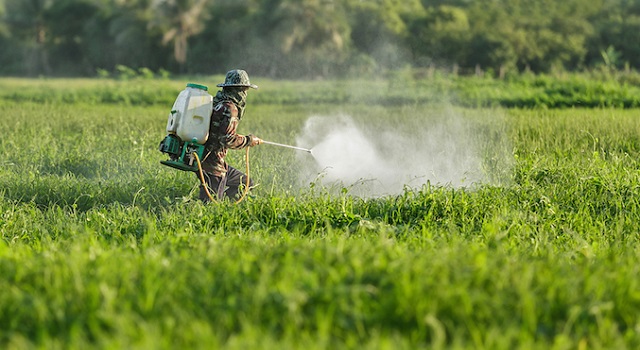
Dewayne Johnson v. Monsanto: Lessons for Uganda as parliament debates concerns raised over National Bio-safety Bill 2017
COMMENT | BARBARA NTAMBIRWEKI | In August 2018, jurors in California, USA, ruled that Roundup, a popular weed killer, was responsible for Mr. Dewayne Johnson’s terminal cancer illness. A former groundskeeper, Johnson was awarded US$289 million in damages for Monsanto’s failure to warn a groundskeeper that Monsanto’s weed killer, Roundup, might cause cancer.
Jurors found that Monsanto acted with “malice” and that its weed killers Roundup and the professional grade version RangerPro contributed “substantially” to Johnson’s terminal illness. Monsanto said it would appeal the decision.
Monsanto Vice President, Scott Partridge, stated: “Today’s decision does not change the fact that more than 800 scientific studies and reviews—and conclusions by the U.S. Environmental Protection Agency (EPA), the U.S. National Institutes of Health and regulatory authorities around the world—support the fact that glyphosate does not cause cancer, and did not cause Mr. Johnson’s cancer,”
Bayer, a German Agro chemical company, recently acquired Monsanto for US$ 63 billion. Both Bayer and Monsanto are major global manufacturers of agrochemicals and seeds, including genetically modified (GM) seed. The merged entity will be the world’s largest supplier by sales of both seeds and pesticides, controlling up to 30 percent of the world’s commercial seed markets and 24 percent of the world’s pesticide markets.
In 2015, the World Health Organisation (WHO’s) International Agency for Research for Cancer released a hazard statement that found glyphosate to be “probably carcinogenic to humans”. In December 2017, the United States Environmental Protection Agency released a draft human health risk assessment that concluded that “glyphosate is not likely to be carcinogenic to humans.” Monsanto claims that several scientific studies have been done proving that roundup does not cause cancer.
However, according to the evidence produced in the Johnson case and internal emails between Monsanto scientists, it was acknowledged that roundup – the glyphosate weed killer that Monsanto sells, does cause damage. Glyphosate is the world’s most used active ingredient in herbicides. Genetically modified (GM) crops grown worldwide are engineered to tolerate being sprayed with glyphosate herbicides. The idea behind such crops is to simplify weed control for farmers.
The farmer could douse the entire field with glyphosate herbicide, killing all weeds without killing the crop. In this case Mr. Johnson developed a severe and fatal form of non-Hodgkin’s lymphoma while working as a school groundskeeper, repeatedly spraying with large quantities of Monsanto’s Roundup and other glyphosate herbicide brands.
This case is a massive precedent for thousands of other cases in the USA against the world’s largest agrochemical company. Another trial is set for October where more than 450 lawsuits are pending in U.S. District Court in San Francisco, filed by people alleging that exposure to Roundup herbicide caused them or their loved ones to develop non-Hodgkin lymphoma, and that Monsanto covered up the risks.
Increasingly there is growing evidence linking the use of glyphosate weed killer to a range of health problems and diseases. According to statistics available, glyphosate is used around the globe (an estimated 826kg a year). It has been noted that glyphosate residues are commonly found in food, water supplies, in soil and air samples.
In Uganda, several farmers are using various chemicals to kill weeds on their farms. Are they safe for agricultural use? Are they a health hazard to our food chain? As a matter of importance we need to reflect on the toxicity of glyphosate in food to assess whether foods sprayed with herbicides containing glyphosate are safe to consume.
As members of parliament continue to deliberate on the National Biosafety Bill 2017 to address the concerns raised by the President of Uganda, The precautionary principle should be followed as the guiding principle of our law as enshrined in the Cartagena Protocol to which Uganda is a signatory. The principle implies that there is a social responsibility to protect the public from exposure to harm.
We need to ensure that a strict liability is clearly stipulated in our law indicating that whoever introduces a GMO, or any other chemical, should be held strictly liable for any damage caused. This will ensure that the big multinational companies are held accountable for the public health and other risks caused by their products and supplies.
The Uganda National Bureau of Standards (UNBS) should endeavor to ensure that roundup, or any other Glyphosate-containing herbicide, is not allowed in our markets. Perhaps cancer ailments are on the increase in Uganda partly because we are exposed to many carcinogenic substances: in this case efforts should be made to investigate most-consumed products on the Ugandan market to establish their possible carcinogenic contents.
In light of the verdict of the Johnson case, it is imperative that the controversy surrounding glyphosate becomes the basis of discussion for deeper conversation about future direction of Uganda’s agriculture system. We need to shift from chemical input intensive weed management to Agroecology methodologies. Agroecology is gaining interest worldwide as an effective answer to climate change and interrelated challenges facing food systems.
****
 The writer is a Research Fellow with Advocates Coalition for Development and Environment (ACODE) b.ntambirweki@acode-u.org
The writer is a Research Fellow with Advocates Coalition for Development and Environment (ACODE) b.ntambirweki@acode-u.org
 The Independent Uganda: You get the Truth we Pay the Price
The Independent Uganda: You get the Truth we Pay the Price



So, from here on out we’ll discuss some proven SEO strategies you could put into your SEO strategies.
There a good old adage making money comes a great deal more
make .